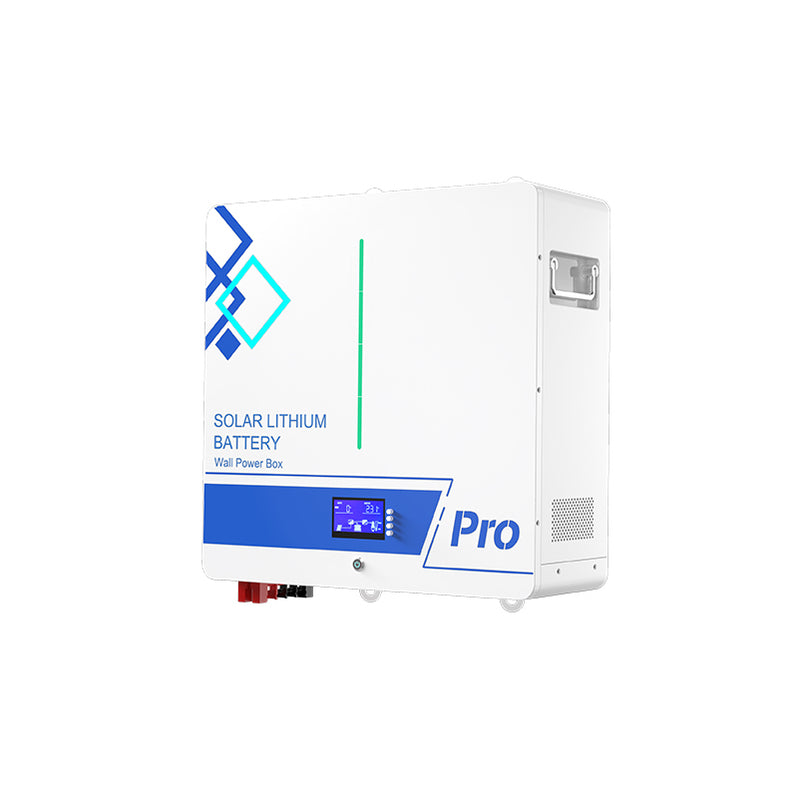Unlock the Power: Discover the Magic of 48V LiFePO4 Batteries!
In today's world, where energy efficiency and sustainability are paramount, 48V LiFePO4 batteries have emerged as a crucial component in modern energy solutions. Their unique chemistry and robust performance make them increasingly popular across various applications, from renewable energy storage to electric vehicles. With the rising concerns over traditional battery technologies, the need for safe, reliable, and environmentally friendly energy storage options has never been greater. As more people and industries recognize the benefits of adopting these innovative batteries, understanding their features and applications becomes essential for informed decision-making.

Understanding 48V LiFePO4 Batteries
LiFePO4, or lithium iron phosphate, is a type of lithium battery known for its stability and safety. Unlike other lithium-ion batteries that use cobalt or nickel, LiFePO4 batteries utilize iron phosphate, which results in a lower risk of thermal runaway and fire hazards. The basic operation of a 48V LiFePO4 battery involves the movement of lithium ions between the anode and cathode during charging and discharging cycles. This design provides higher thermal stability and a longer cycle life compared to other lithium-ion technologies. Furthermore, the 48V configuration allows for efficient integration into various systems, making it an attractive choice for both residential and commercial applications.
Features of 48V LiFePO4 Batteries
One of the standout features of 48V LiFePO4 batteries is their impressive energy density. While they may not have the highest energy density compared to other lithium-ion batteries, their balance of performance and safety is unmatched. Additionally, they boast a cycle life of over 2000 charge-discharge cycles, which significantly outperforms lead-acid batteries. Safety is another key feature; these batteries are inherently stable and less prone to overheating. Their thermal stability ensures that even under extreme conditions, the risk of failure is minimized. Collectively, these features contribute to their reliability, making them a preferred choice for critical applications.
Benefits of Using 48V LiFePO4 Batteries
The advantages of 48V LiFePO4 batteries extend far beyond their technical specifications. One of the most appealing benefits is their longer lifespan compared to traditional batteries, which translates to lower replacement costs over time. Additionally, they are eco-friendly, featuring non-toxic materials that are safer for the environment. Their minimal maintenance requirements mean that users can enjoy hassle-free operation, which is a significant advantage for those seeking reliable energy solutions. In my experience, a friend who installed a solar energy system at home switched to a 48V LiFePO4 battery and has reported significant savings on energy bills while enjoying peace of mind regarding sustainability.
Applications of 48V LiFePO4 Batteries
48V LiFePO4 batteries are versatile and can be applied in numerous sectors, demonstrating their flexibility and utility. In renewable energy storage, they are often used to store solar energy, allowing homeowners to harness sunlight and use it during peak hours or at night. Furthermore, these batteries are gaining traction in the electric vehicle sector, providing the energy needed for efficient and sustainable transportation. Backup power systems also benefit from their reliability, ensuring that critical systems remain operational during power outages. For instance, many businesses are now integrating these batteries into their uninterruptible power supply (UPS) systems, ensuring seamless operation even when the grid fails.
Specifications of 48V LiFePO4 Batteries
When selecting a 48V LiFePO4 battery, it's essential to consider its technical specifications. Key specifications include voltage, typically at 48V, and a capacity that can range widely depending on the intended application. Dimensions and weight are also important factors, particularly for portable or space-constrained setups. Discharge rates vary based on the battery design and application, impacting performance under load. Understanding these specifications helps users make informed choices to match their energy needs, whether for residential, commercial, or industrial applications.
Final Thoughts on 48V LiFePO4 Batteries
In summary, 48V LiFePO4 batteries represent a significant advancement in energy storage technology, offering a blend of safety, efficiency, and versatility. Their robust features, practical benefits, and wide-ranging applications make them an invaluable asset in both current and future energy solutions. As the demand for sustainable energy sources continues to grow, considering the adoption of 48V LiFePO4 batteries could be a wise decision for individuals and businesses alike. Embracing this innovative technology not only meets energy needs but also contributes to a more sustainable future.







